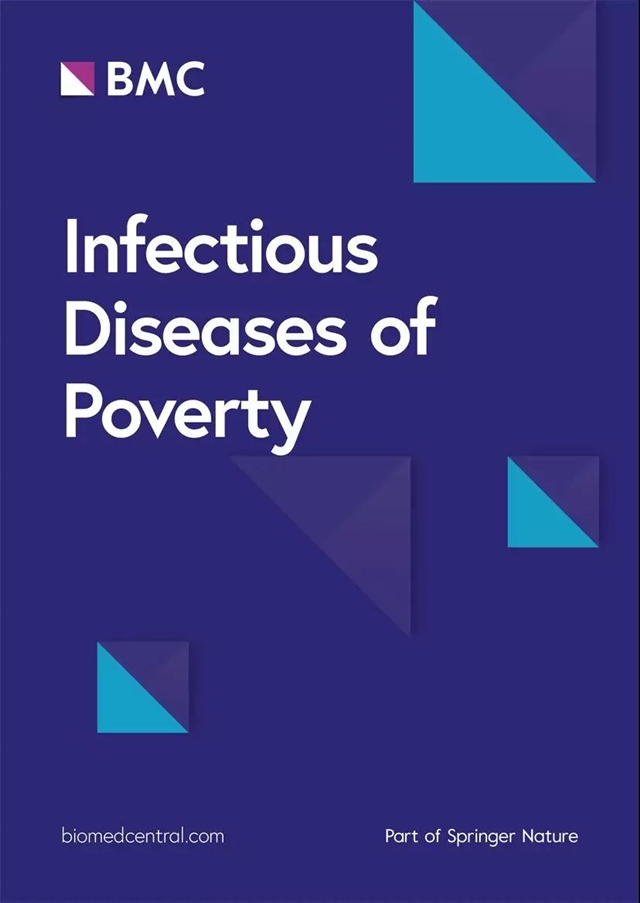Climate-influenced vector-borne diseases in Africa: a call to empower the next generation of African researchers for sustainable solutions
IF 5.5
1区 医学
Q1 INFECTIOUS DISEASES
引用次数: 0
Abstract
We look at the link between climate change and vector-borne diseases in low- and middle-income countries in Africa. The large endemicity and escalating threat of diseases such as malaria and arboviral diseases, intensified by climate change, disproportionately affects vulnerable communities globally. We highlight the urgency of prioritizing research and development, advocating for robust scientific inquiry to promote adaptation strategies, and the vital role that the next generation of African research leaders will play in addressing these challenges. Despite significant challenges such as funding shortages within countries, various pan-African-oriented funding bodies such as the African Academy of Sciences, the Africa Research Excellence Fund, the Wellcome Trust, the U.S. National Institutes of Health, and the Bill and Melinda Gates Foundation as well as initiatives such as the African Research Initiative for Scientific Excellence and the Pan-African Mosquito Control Association, have empowered (or are empowering) these researchers by supporting capacity building activities, including continental and global networking, skill development, mentoring, and African-led research. This article underscores the urgency of increased national investment in research, proposing the establishment of research government agencies to drive evidence-based interventions. Collaboration between governments and scientific communities, sustained by pan-African funding bodies, is crucial. Through these efforts, African nations are likely to enhance the resilience and adaptive capacity of their systems and communities by navigating these challenges effectively, fostering scientific excellence and implementing transformative solutions against climate-sensitive vector-borne diseases.非洲受气候影响的病媒传染疾病:呼吁增强下一代非洲研究人员的能力,以找到可持续的解决方案
我们关注气候变化与非洲中低收入国家病媒传播疾病之间的联系。气候变化加剧了疟疾和虫媒病毒疾病等疾病的大规模流行和不断升级的威胁,对全球弱势社区造成了极大的影响。我们强调,当务之急是优先开展研究和开发工作,倡导开展强有力的科学调查以促进适应战略,以及下一代非洲科研领袖在应对这些挑战方面将发挥的重要作用。尽管面临国内资金短缺等重大挑战,但非洲科学院、非洲卓越研究基金、惠康信托基金、美国国立卫生研究院、比尔及梅林达-盖茨基金会等各种面向泛非的资助机构,以及非洲科学卓越研究倡议和泛非蚊虫控制协会等倡议,已经(或正在)通过支持能力建设活动,包括非洲大陆和全球网络、技能发展、指导和非洲主导的研究,增强这些研究人员的能力。这篇文章强调了增加国家研究投资的紧迫性,建议建立研究型政府机构,以推动循证干预措施。在泛非资助机构的支持下,政府与科学界之间的合作至关重要。通过这些努力,非洲国家有可能有效地应对这些挑战,促进科学卓越性,并实施针对气候敏感病媒传染疾病的变革性解决方案,从而提高其系统和社区的复原力和适应能力。
本文章由计算机程序翻译,如有差异,请以英文原文为准。
求助全文
约1分钟内获得全文
求助全文
来源期刊

Infectious Diseases of Poverty
Medicine-Public Health, Environmental and Occupational Health
CiteScore
16.70
自引率
1.20%
发文量
368
审稿时长
13 weeks
期刊介绍:
Infectious Diseases of Poverty is a peer-reviewed, open access journal that focuses on essential public health questions related to infectious diseases of poverty. It covers a wide range of topics and methods, including the biology of pathogens and vectors, diagnosis and detection, treatment and case management, epidemiology and modeling, zoonotic hosts and animal reservoirs, control strategies and implementation, new technologies, and their application.
The journal also explores the impact of transdisciplinary or multisectoral approaches on health systems, ecohealth, environmental management, and innovative technologies. It aims to provide a platform for the exchange of research and ideas that can contribute to the improvement of public health in resource-limited settings.
In summary, Infectious Diseases of Poverty aims to address the urgent challenges posed by infectious diseases in impoverished populations. By publishing high-quality research in various areas, the journal seeks to advance our understanding of these diseases and contribute to the development of effective strategies for prevention, diagnosis, and treatment.
 求助内容:
求助内容: 应助结果提醒方式:
应助结果提醒方式:


